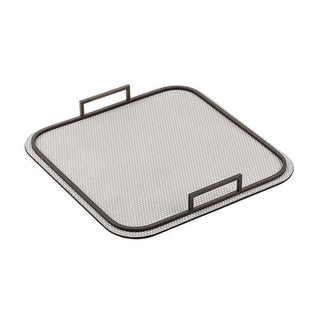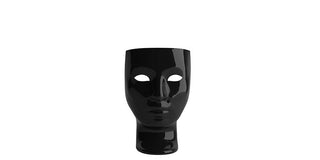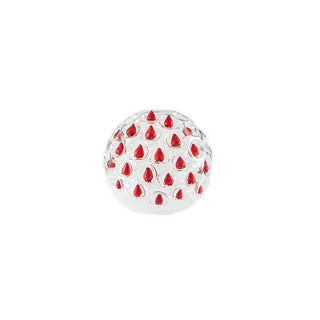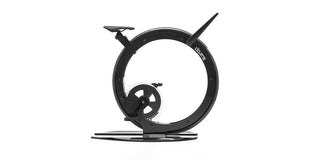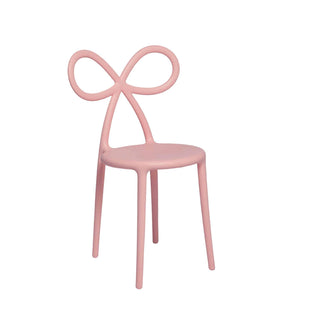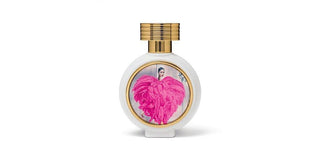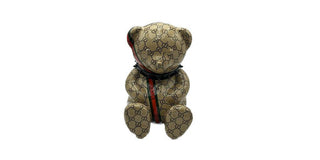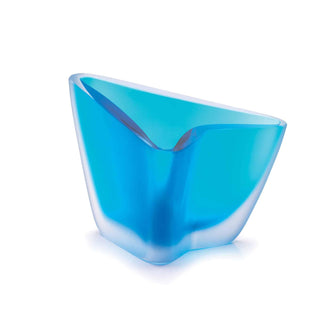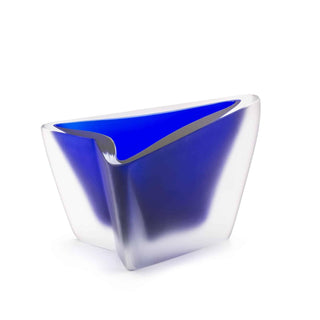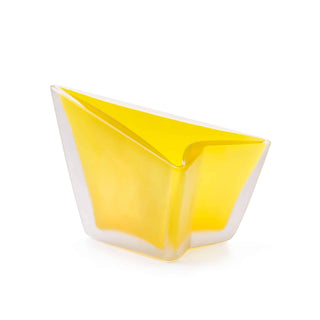Designed by Alessandro Mendini, Freccia is a triangular base vase with an integral side which serves to give both direction and an arrow shape. The top is diagonal instead of horizontal, in order to obtain a dynamic form emphasized by the matt finish of the Murano blown glass. As with all Purho’s products, Freccia is available in twenty-one colours or bespoke personalisations and in two different sizes.
Dimensions: 25x21x16 cm
Each item can be customized in color, choose your preferite here
Contact us to create your product
Alessandro Mendini
Alessandro Mendini is an Italian architect, designer, painter, journalist, critic and theorist of architecture and design, founder of theories and concepts concerning postmodern design, banal design and re-design. The protagonist of many cultural events in Italy in the seventies, he founded and joined movements and research groups such as Global Tools (in 1973) and Alchimia (in 1979). Founder and Director of some design magazines (Modo 1977 - 1979 and Ollo from 1988), he has also directed two important Italian architecture magazines (Casabella 1970 - 1976 and Domus 1979 -1985). In 1989, together with his brother Francesco, he founded Atelier Mendini in Milan: a studio that designs objects, furniture, installations, interiors, paintings, architectures, collaborates with international companies and is a consultant for various industries in Europe and the Far East. Numerous writings as numerous awards and recognitions. For the value of his work, architect Mendini was named Chevalier des Arts et des Lettres in France, he received the Golden Compass for Career, the honor of the Architectural League (New York, 1983), The European Prize for Architecture in 2014 and, among others, the Laurea Honoris Causa at the Milan Polytechnic.PURHO
Purho in line with the tradition of true master glassmakers and with the purest design, an explosion of color and style made of Murano glass made in Italy. Founded in 2012 by Andrea Dotto, Ceo of the brand Purho, with the desire to give substance to the infinite potential of the liaison between Murano glass and contemporary design, Purho today presents itself on the market with solid research in which the observation of taste flows and new creative languages have been translated through the filter of Murano glass tradition. The result, similar to an exercise in synthesis in which there are few exceptions justify to the decoration, is a collection of products with clean lines, sometimes fluid, sometimes markedly geometric in which the color, treated in purity, becomes central: 21 are in fact the special shades that compose a dense, vitaminic color chart, available for bespoke customizations and productions.Purho, Italian soul and international character represent a wide range of thematic collections designed by Karim Rashid, Alessandro Mendini, Elena Cutolo, Filippo Feroldi, VI + M Studio, and LPWK, transformed into wonderful material by skilled master glassmakers: unique pieces, made in Murano glass and accompanied by the “Murano artistic glass” certification. A pure concept is by its nature independent
from the empirical data of sensitivity: it presents itself to our spirit in purity beyond any material contingency. How a pure concept can therefore manifest itself in an object? Contrary to all the previous tradition, the object exists purely in the function of the subject and assumes the laws of the subject who learns it as a form of knowledge. We can receive from things in a pure way only what we ourselves put into it. The component of Venetian glass is essentially silicon dioxide as a vitrifying and crystalline component, consisting of quarried sand and in the past from quartz river pebbles crushed and pulverized, and as flux, once supplied by ashes of coastal plants and today by carbonate sodium or potassium carbonate.
Lime is used as a stabilizer in addition to other various additions of various minerals for coloring, bleaching, opacifying and refined and other specific substances to give the glass special qualities. All ingredients are weighed within the “composition” room. “Glass is always true because it is imperfect. And it’s perfect if it is so. It’s like a beautiful woman … when you think you’ve understood it in truth you did not understand anything. “
Designed by Alessandro Mendini, Freccia is a triangular base vase with an integral side which serves to give both direction and an arrow shape. The top is diagonal instead of horizontal, in order to obtain a dynamic form emphasized by the matt finish of the Murano blown glass. As with all Purho’s products, Freccia is available in twenty-one colours or bespoke personalisations and in two different sizes.
Dimensions: 25x21x16 cm
Each item can be customized in color, choose your preferite here
Contact us to create your product
Alessandro Mendini
Alessandro Mendini is an Italian architect, designer, painter, journalist, critic and theorist of architecture and design, founder of theories and concepts concerning postmodern design, banal design and re-design. The protagonist of many cultural events in Italy in the seventies, he founded and joined movements and research groups such as Global Tools (in 1973) and Alchimia (in 1979). Founder and Director of some design magazines (Modo 1977 - 1979 and Ollo from 1988), he has also directed two important Italian architecture magazines (Casabella 1970 - 1976 and Domus 1979 -1985). In 1989, together with his brother Francesco, he founded Atelier Mendini in Milan: a studio that designs objects, furniture, installations, interiors, paintings, architectures, collaborates with international companies and is a consultant for various industries in Europe and the Far East. Numerous writings as numerous awards and recognitions. For the value of his work, architect Mendini was named Chevalier des Arts et des Lettres in France, he received the Golden Compass for Career, the honor of the Architectural League (New York, 1983), The European Prize for Architecture in 2014 and, among others, the Laurea Honoris Causa at the Milan Polytechnic.PURHO
Purho in line with the tradition of true master glassmakers and with the purest design, an explosion of color and style made of Murano glass made in Italy. Founded in 2012 by Andrea Dotto, Ceo of the brand Purho, with the desire to give substance to the infinite potential of the liaison between Murano glass and contemporary design, Purho today presents itself on the market with solid research in which the observation of taste flows and new creative languages have been translated through the filter of Murano glass tradition. The result, similar to an exercise in synthesis in which there are few exceptions justify to the decoration, is a collection of products with clean lines, sometimes fluid, sometimes markedly geometric in which the color, treated in purity, becomes central: 21 are in fact the special shades that compose a dense, vitaminic color chart, available for bespoke customizations and productions.Purho, Italian soul and international character represent a wide range of thematic collections designed by Karim Rashid, Alessandro Mendini, Elena Cutolo, Filippo Feroldi, VI + M Studio, and LPWK, transformed into wonderful material by skilled master glassmakers: unique pieces, made in Murano glass and accompanied by the “Murano artistic glass” certification. A pure concept is by its nature independent
from the empirical data of sensitivity: it presents itself to our spirit in purity beyond any material contingency. How a pure concept can therefore manifest itself in an object? Contrary to all the previous tradition, the object exists purely in the function of the subject and assumes the laws of the subject who learns it as a form of knowledge. We can receive from things in a pure way only what we ourselves put into it. The component of Venetian glass is essentially silicon dioxide as a vitrifying and crystalline component, consisting of quarried sand and in the past from quartz river pebbles crushed and pulverized, and as flux, once supplied by ashes of coastal plants and today by carbonate sodium or potassium carbonate.
Lime is used as a stabilizer in addition to other various additions of various minerals for coloring, bleaching, opacifying and refined and other specific substances to give the glass special qualities. All ingredients are weighed within the “composition” room. “Glass is always true because it is imperfect. And it’s perfect if it is so. It’s like a beautiful woman … when you think you’ve understood it in truth you did not understand anything. “


